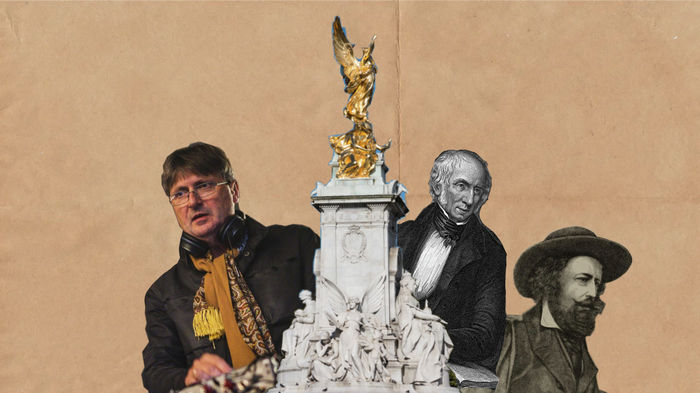How is a poet like an onion?: an evening with Carol Ann Duffy
Carol Anne Duffy is a poet most known for tormenting countless GCSE students with poetry about onions, but as David Quinn discovers, there’s more layers to the ex-poet laureate than meets the eye

The German theologian Karl Rahner, in an attempt to explain divine self-knowledge, stated that Christ was like an onion. (While this may not at first seem relevant to a poetry review, it is, I promise.) My first introduction to Carol Ann Duffy was her poem “Valentine”, in which she compares love to the gifting of an onion. It was certainly an unusual use of symbolism. Needless to say, the poem was a victim of the merciless and mostly bored students studying English Literature for their GCSEs. Therefore, I attended the Cambridge Literary Festival’s discussion with Duffy carrying little expectations - perhaps that was why I changed my mind.
“She was aligning herself with her teenage critics; my 15-year-old self wept in an act completely unrelated to onions”
Carol Ann Duffy had no pretensions about her poetry. As the interviewer gushed over the brilliance of her new anthologies, Duffy was quick to state that her main challenge in compiling the books was cutting out the “crap poems”. Some nervous laughter followed from the audience. She was aligning herself with her teenage critics; my 15-year-old self wept in an act completely unrelated to onions. For all the humour of the statement, Duffy’s approach to her poetry was genuinely refreshing. As she said herself, her reason for continuing to write and create was to constantly improve on her past work, only proving that - even when you’re a former poet laureate - the poetic journey is never complete.
For the majority of the evening, the interviewer’s endless praise seemed at odds with Duffy’s honesty and self-deprecation. When she described Duffy’s word choices as “nimble”, Duffy quickly corrected her with the rather different word choice of “plodding”. While amusing, this was also highly revealing: drafts were crucial to Duffy, and any seeming nimble-ness was only achieved through thorough thought and revision. Like the lover’s onion, perfection must not be expected initially. Well, at the very least it made me feel a little better about some of the essays I churned out this year.
“I realised I had been blind to the fact that - like an onion - the poet had many layers”
The event’s traditional interview structure also seemed to become a barrier to a real discussion of Duffy’s work; after prompting her to read a poem, the interviewer frequently followed with a single question before swiftly moving on to an often-unrelated follow-up. This disjointedness restricted the highlights of the evening: Duffy’s unexpected and improvised sayings. The event worked best at its least structured, as the poet’s tangents or forgetfulness about significant life events were far more interesting than the questions designed to interrogate the specifics of her work. She knew how to play us as an audience, and had just the words to engross us in her story. This was more telling than any prepared anecdote.
Duffy’s apathy to audience questions was delicious. As one member of the audience asked her who her favourite politician was, there was a near audible eye roll. She responded with the stoic, stony silence so characteristic of her poems. If a question was not quite up to scratch, she wasn’t afraid to point it out, and this tension between her responses and the questions was what made her answers so engaging. When she did not know how to respond to the final question about her creative process, she simply admitted that she did not know. I didn’t know what to think.
To say the evening wasn’t enlightening would be a lie. I questioned all my assumptions about Duffy, even if I still don’t quite find her poems to be divinely inspired. She had been wise, mysterious and, most of all, fun to spend an hour with. I realised I had been blind to the fact that - like an onion - the poet had many layers.
Leaving the Union debating chamber, my friends and I spotted Duffy as she headed upstairs to begin signing books. Standing in the queue, we struggled to think what we could ask her, afraid of her wit. As I handed my book over, I asked the poet if she had ever heard of the German theologian Karl Rahner and his “holy onion” analogy. Did she think it related to her poem “Valentine”? Her wit struck again: “well, that must make me God.” Walking back onto the streets of Cambridge, I was inclined to agree with her. The last words she had said to us echoed in my head. “Go forth my children and conquer.”
 News / Cambridge student numbers fall amid nationwide decline14 April 2025
News / Cambridge student numbers fall amid nationwide decline14 April 2025 News / Greenwich House occupiers miss deadline to respond to University legal action15 April 2025
News / Greenwich House occupiers miss deadline to respond to University legal action15 April 2025 Comment / The Cambridge workload prioritises quantity over quality 16 April 2025
Comment / The Cambridge workload prioritises quantity over quality 16 April 2025 Sport / Cambridge celebrate clean sweep at Boat Race 202514 April 2025
Sport / Cambridge celebrate clean sweep at Boat Race 202514 April 2025 Features / The TikTok college: using social media in access and outreach15 April 2025
Features / The TikTok college: using social media in access and outreach15 April 2025






